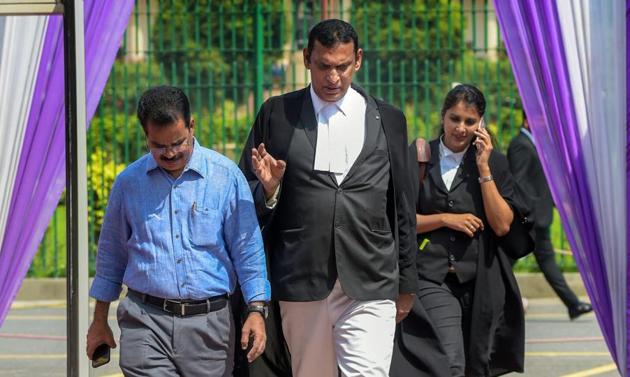Gender justice gets a shot in the arm with the SC verdict saying adultery is not a crime
In four concurring opinions running into 243 pages, the Supreme Court found Section 497 of IPC violative of the fundamental rights to equality, non-discrimination, privacy, dignity and autonomy guaranteed under Articles 14, 15 and 21 of the Constitution
Following the landmark judgment striking down Section 377 in early September, the Supreme Court has struck down another colonial relic in the form of the offence of adultery under Section 497 of the Indian Penal Code, 1860 (IPC). Section 497 penalises a man for having consensual sexual intercourse with a married woman, without the consent or connivance of her husband, and makes him liable for imprisonment up to a maximum sentence of five years, or fine, or both.

In four concurring opinions running into 243 pages, Chief Justice Dipak Misra, Justice Rohinton Nariman, Justice DY Chandrachud and Justice Indu Malhotra found Section 497, IPC violative of the fundamental rights to equality, non-discrimination, privacy, dignity and autonomy guaranteed under Articles 14, 15 and 21 of the Constitution.
Interestingly, the petitioner in this case had challenged the law in the Supreme Court on the grounds that it mainly discriminated against men, by making them liable, while the woman, who is equally liable, faces no criminal prosecution, thereby infringing the right to equality of men under Article 14. On the face of it, the argument seems attractive, but when one digs deeper to understand the genesis of the law, it is evident that the offence of adultery is nothing but a clear and unequivocal affront to the dignity and autonomy of married women. And this is exactly what the Supreme Court in a unanimous decision in Joseph Shine v. Union of India [Writ Petition (Criminal) No. 197 of 2017] held, thereby overruling the earlier Supreme Court judgments that had upheld the validity of Section 497, especially in Sowmithri Vishnu v. Union of India [AIR 1985 SC 1618].
Without getting into the details of the opinions, it is clear that all the judges went deep into the history of the law, including when it was an ecclesiastical wrong, i.e., a crime against the Church, to underscore what Justice Nariman succinctly states that “what is therefore punished as ‘adultery’ is not ‘adultery’ per se, but the proprietory interest of a married man in his wife”, and adultery was considered the ‘highest form of invasion of property’. This is the crux of the offence, which the court held has no place in our present constitutional scheme, for being manifestly arbitrary, and demeaning the dignity of women. Justice Chandrachud too concurs that Section 497 exacts ‘sexual fidelity’ from women in marriage, while curtailing her sexual agency and autonomy, with an underlying assumption that they have given up their sexual self-determination and bodily integrity upon entering the institution of marriage. This notion is an anathema to the constitutional morality as well as founded on gender stereotypes, which is impermissible under Article 15. As the court held, intimate personal choices of women do not cease after marriage, which would be equally relevant in the case of making marital rape an offence, currently pending in the Delhi High Court.
Agreeing with all these observations, Justice Indu Malhotra pertinently adds a crucial dimension in her opinion, i.e., the doctrine of ‘coverture’ in old English law, which provided that the husband and the wife were a ‘single’ legal unit, thereby subsuming the wife’s rights by that of her husband. This principle was in turn the origin of adultery offence in tort, giving the husband the right to claim damages against the man for having sexual relationship with his wife. The doctrine of ‘coverture’ has had a devastating impact on women’s rights in marriage, wherein the husband is supposed to be entitled to wife’s sexual companionship, as evident from the provisions on restitution of conjugal rights, or no law on equal division of matrimonial property after divorce.
Joseph Shine is a first step in the reform of matrimonial laws, with hopefully more to come in the form of criminalisation of marital rape, no fault divorce and woman’s right to matrimonial property. As Chandrachud remarks, “throughout history, the law has failed to ask the woman question”, it seems that finally that question is being asked and answered too in the increasing jurisprudence on gender justice, albeit slowly, one case at a time.
Amritananda Chakravorty is a Delhi-based advocate
The views expressed are personal






